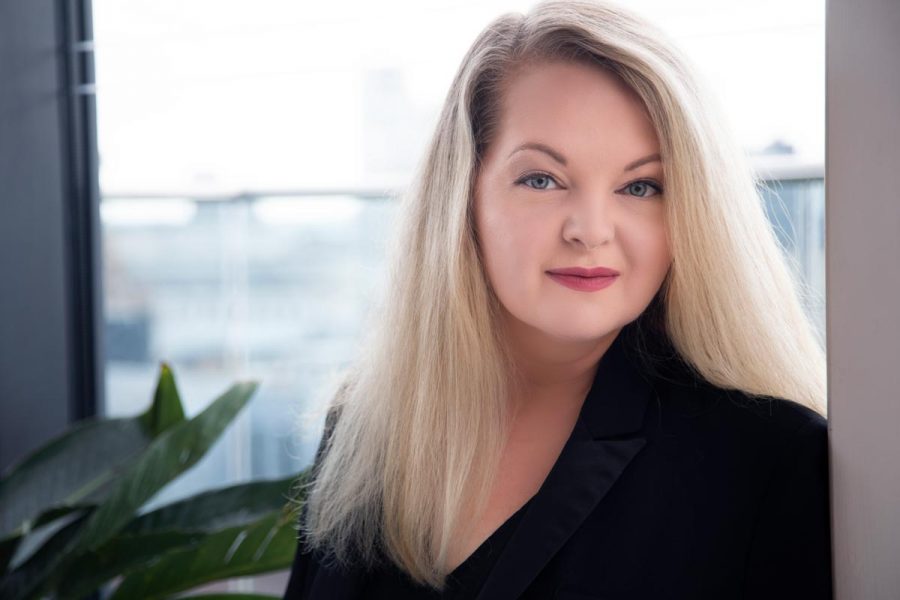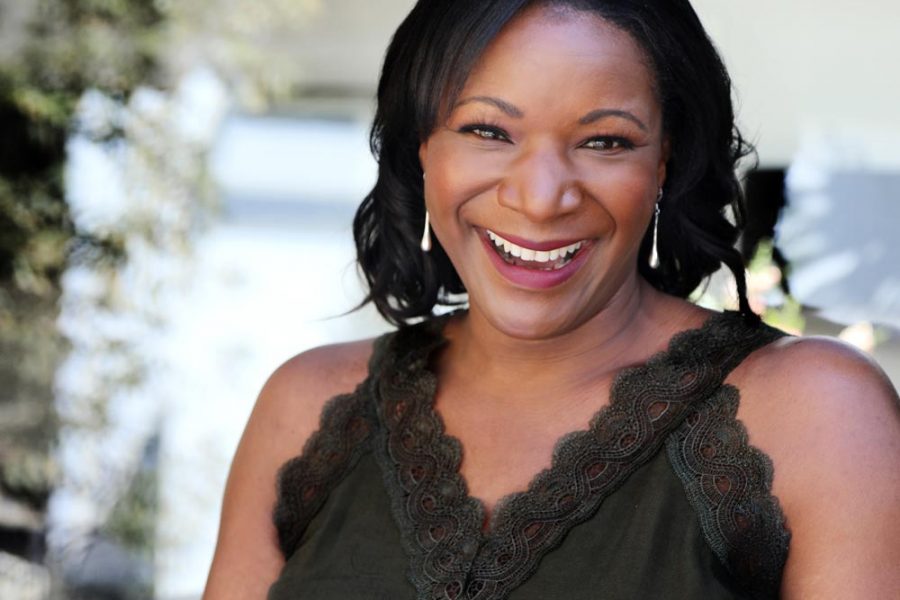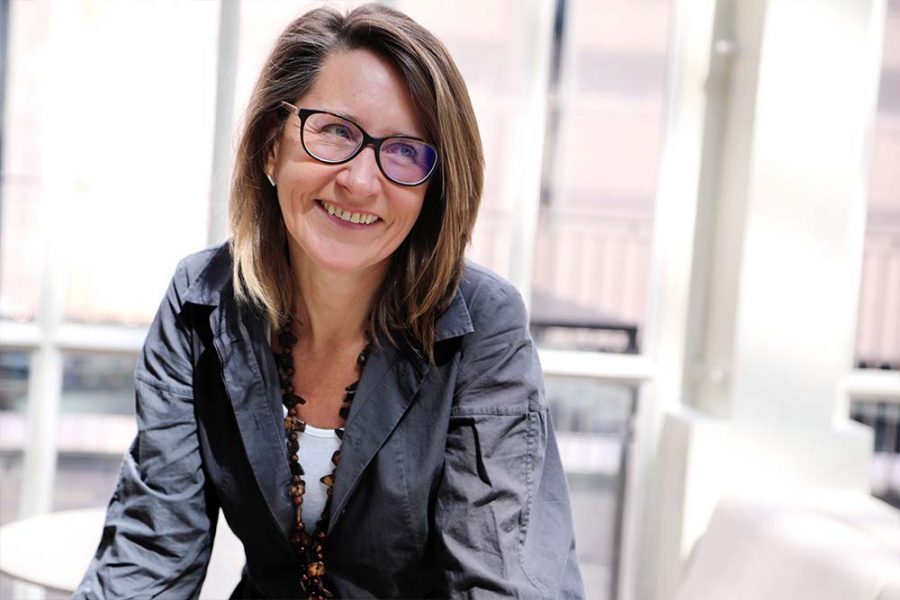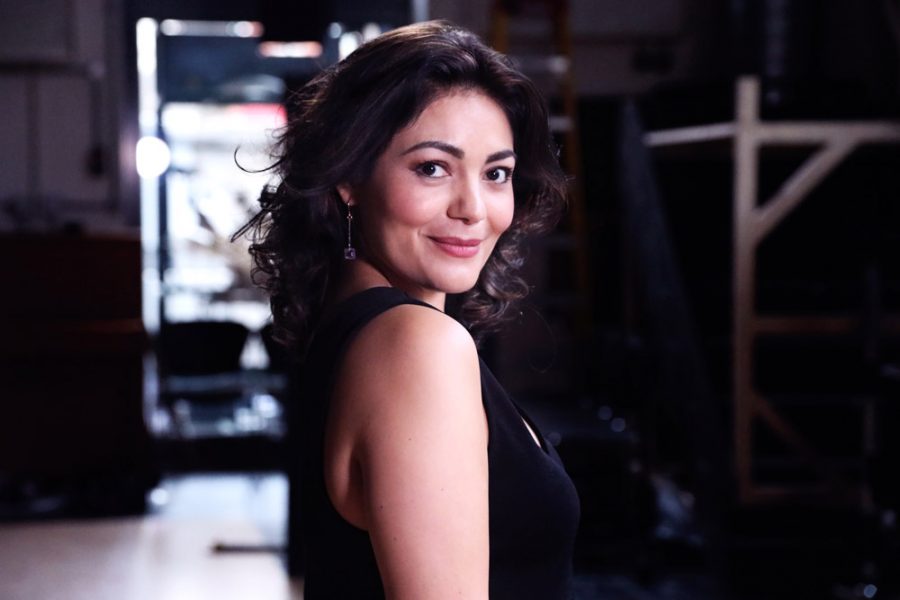Celebrating the CMC at 30: Evonne Ferguson

June 2016
Words by
Emer Nestor
Photos by
Frances Marshall
The Contemporary Music Centre (CMC) is Ireland’s archive and resource centre for new music, supporting the work of composers throughout the island of Ireland. Hot on the foot of the CMC’s hugely successful conference, The Listening Crowd, Final Note went behind the scenes of this national musical treasure, to find out more about its director Evonne Ferguson and to chat about the CMC at 30.
Evonne, why did you decide to pursue a career in music?
I don’t know if we decide things in that way, so very deliberately! I think they kind of evolve over time with opportunities that arise. There’s been a lot of ‘right time right place’ situations in my career. Music was always around when I was growing up—my father is very musical. I was always singing as a child. As I got older my parents encouraged me to take lessons in piano and clarinet, similar to many people of my generation I suppose. I decided fairly early on in secondary school that I wanted to study music after the Leaving Cert. There was no big master plan but I’d say I was always hopeful that I could find work in music…in some aspect of it. I wasn’t talented enough for performance!
I used to record myself singing into a tape recorder when I was bored during summer holidays as a kid!"

What led you into producing and broadcasting?
I grew up listening to the radio. It was always there in the background, in the foreground in the morning, and last thing at night. I used to write letters to 2fm every week hoping they would be read out. I used to record myself singing into a tape recorder when I was bored during summer holidays as a kid! We had media in my secondary school, which was fairly forward thinking for the 1980s, where we got to make DIY radio programmes and write critical reviews of our favourite albums.
After an undergraduate degree in Music and English, I took a year to have a think about things and to work. I did loads of substitute primary teaching, which I really enjoyed. I knew I wanted to work in music and I was fairly hopeful that there was a world of stuff out there that I could do if I just had some further training or study. So I considered taking a Masters in music technology. Then as fortune would have it, Trinity College Dublin started a new Masters programme—MPhil in music and media technologies—it had my name written all over it!
Fortunately, I got a place in the very first year of it, and I credit it with giving me the confidence, skills and discipline for everything that’s happened since. I’d just graduated from the MPhil when the advertisements for RTÉ lyric fm‘s start-up team appeared in the paper. It was the perfect opportunity and an exciting challenge to be part of the start of a new radio service on RTÉ. I feel honoured to have been part of the original team, with lots of talented colleagues.
What do you love most about the medium of Radio?
Radio holds a certain magic for me, even though I know how it all works, and was part of how it worked on a daily basis for many years. I’m one of those people that likes nothing more than tuning in to the Met broadcasts. How amazing is it to know that I’m listening live from New York through my ordinary fm radio in my kitchen!
Tell us about your time in Lyric fm.
I was a producer for over six years at RTÉ lyric fm and produced a number of programmes in areas which are still of strong interest to me, such as contemporary music and choral music. I was also the first producer on The Blue of the Night programme, which still presents a high quality eclectic mix of music.
I enjoyed meeting so many composers and performers, recording them, interviewing them, at both national and international level. As luck with have it, through producing Horizons (the precursor to Nova), I got to interview important composers of our time, like Louis Andreissen and James MacMillan (he might still have his lyric T-shirt). This all contributed to my developing knowledge of Irish contemporary music.
I left lyric in 2005, to run the pilot music education service in Co. Donegal, and then in 2010 I came to the position of director of the Contemporary Music Centre, so I was out of Lyric and radio for almost 10 years.
Did you find the move from producer to broadcaster particularly challenging after such a break?
Selecting music has always been a total joy for me and I really enjoy making connections between pieces, genres, composers and sound worlds. But it was 10 years since I’d been in a studio so it took me a few weeks to get to grips with some of the technical stuff. But planning the music with the producer and then preparing my own notes for the music, is something that is fairly natural to me. There are pieces that I am hearing afresh and composers which I have begun to appreciate more and have a deeper understanding of due to preparing the show, so I’m calling on a lot of musical knowledge that was dormant, and the feedback from listeners directly through emails and texts is something I really value. It’s so interesting to hear what listeners are enjoying at 7.20 on a Saturday morning. That’s a all about right time right place again, a piece that works at that time of the show might have less of an impact of too much of an impact at 9.20!
Ah that’s interesting! The presenter is the one flying the plane, so ground control can only do so much at that stage, and I don’t think I appreciated that quite fully enough when I was a producer. My producer background is obviously a big resource in my presenting; I’m calling on a lot of knowledge.

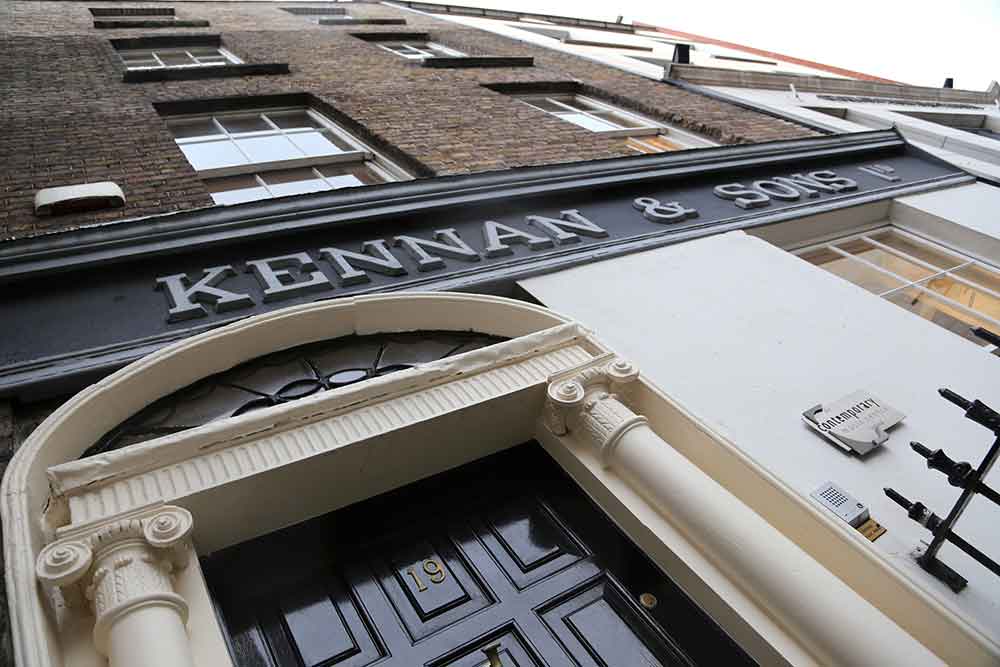

Tell us about your show, Daybreak — how you go about devising your play list and catering to the musical tastes of your listeners?
It’s a combined effort between myself and the producer, Sinead Wylde, who of course is an old colleague of mine, so I think for both of us there is a lot of mutual respect. I enjoy making the selections with someone else, as everyone has quite particular tastes, and it’s better to work together to achieve a sense of balance for the listener. Every week is a little different in how we do it…it keeps us both on our toes and keeps the show from being formulaic. We do try to build a musical narrative through the programme on any given Saturday and make connections through musical history.
One week Sinead will start with some musical ideas that I add to, and suggest certain music to me and the next week, I might start with a thread of ideas that I have, we do try to build a musical narrative through the programme on any given Saturday and make connections through musical history.
It’s all about the music and only a little of me. I’m interested in bringing the listener on a journey, and it’s a great joy and a huge privilege to share all this music each week with people who are equally passionate about it.
International promotion is a main concern for our composers and we hope to build the presence of new music from Ireland at Classical: Next in the years to come..."

Why did you decide to become involved with the Contemporary Music Centre, and what would you consider your greatest achievement so far as director?
As an established organisation, with a respected history, CMC was certainly a little daunting for me. Before joining the team I’d been used to working in start-up situations such as lyric, which was a new radio station, and then the Donegal Music Education partnership—this pilot model was the precursor to the development of the wonderful Music Generation initiative—where I held the role as its first music development manager. The Contemporary Music Centre was an organization I admired immensely, when I worked in lyric I knew CMC’s number off by heart, because I called it so much! It was my main resource when I produced Horizons (the precursor to Nova) and I knew a lot of the team in CMC very well when I was working in lyric. I always considered it an important resource and invaluable in terms of the archive it holds and the expertise and knowledge of those working there.
It’s for others to judge what are the achievements in the last 5 years, but I am proud that we hosted a visit by renowned US broadcaster in March last, where he launched our showcase CD new music new Ireland 2 and we devised a schedule where he met numerous composers and performers in Belfast, Dublin and Cork. This visit led to seven programmes on new music from Ireland on John’s show, new sounds to a huge listenership in the greater New York area and through access online. That kind of international profile for composers from Ireland is essential. We also were involved in a pan European project called new music new audiences with Crash Ensemble and the Galway ConTempo Quartet with 32 ensembles from across Europe to explore ideas for presenting new music in an innovative and engaging way.
As Ireland’s national archive and resource centre for new music, how is the CMC promoting contemporary music within the current musical climate?
CMC aims to develop the environment for new music by amplifying contemporary music nationally and making connections between many diverse groups in order to develop the art form. CMC positions Audience Development at the heart of its developmental and promotional work, in tandem with Professional Development for the composers and performers of new music.
We are quite proud of our new website, which we launched in March 2016. It has a host of new features and strong audio and visual content, which we feel is a window to the diverse and vibrant landscape of contemporary music and sound art on the island of Ireland. With the enhanced composers’ pages, which link to scores and recordings and interviews (both audio and video), we hope to bring the exciting story of composers to an ever-increasing online audience.
We always encourage composers and performers who specialize in collaborating with composers to keep us up-to-date on new projects, performances dates, and their ideas for developing and disseminating their work. We also deliver an annual programme of professional development and residency opportunities, both nationally and internationally.
International promotion is a main concern for our composers and we hope to build the presence of new music from Ireland at Classical: Next in the years to come, and to build ongoing relationships with broadcasters, venues, and festivals internationally.
One of our most important functions is ensuring that the contemporary music landscape in Ireland is documented and preserved for future generations, and that access is provided to a dynamic library of contemporary works. The public library delivers access to these scores on a daily basis, including provision of scores for performance. The archive (physical and digital) preserves these works for the future, playing a central and unique role in the musical heritage of the island.

Do you think that the Irish Government and Arts Council are doing enough to support its artists, and what needs to be done to nurture the country’s wealth of musical talent?
Artistically, Irish contemporary music is thriving. It is vibrant, it is diverse, and it attracts a lot of international interest. Unfortunately, the direct support to the composer/music creator and the performers, and to the infrastructure that supports them is under serious pressure. The Arts Council can only work with what they are allocated. More funding is needed, and that’s a decision for government. It’s quite disheartening to see that a dedicated minister for the arts is not a government priority. And this is after all of us giving our time to meetings around the country about a national cultural policy, not to mention making considered and substantial written submissions about it.
I don’t accept that it’s all about funding and allocations of already small budgets. It’s about attitudes, it’s about what we want to value as a society—that’s a much larger philosophical and indeed moral question, and it would seem that politicians in general steer clear of those kind of questions!
Where there is a will there is a way. For instance, the former department of education and skills funded the initial pilots of music education services, before U2 and the Ireland funds supported the Music Generation initiative. There was a commitment to make a start in addressing the lack of education service provision for music.
I’m quite hopeful about the Arts Council’s new strategy which has been a very consultative process, and which is still proceeding as such. The current funding system doesn’t work for all artists, in terms of long-term development. Funding is too short-term, and composers and performers are going from project to project, commission to commission, with no real opportunity to develop their long-term goals as artists. This is a very real issue for composers who are mid-career. This mid-career issue is not specific to the contemporary music area; it’s happening throughout the arts on a global level.
The Arts Council has to be responsible for maintaining an environment in which challenging, as well as comforting, works of art are presented to the public. CMC is part of that environment and the support structure for the composer and performers who specialise in this area, in developing their career and their audiences.
What does 2016 hold for the CMC?
2016 is quite a big year for the Contemporary Music Centre. To celebrate our 30 years, we commenced a new partnership, Centre Culturel Irlandais, for a specific residency for CMC registered composers. Composer Greg Caffrey was awarded this residency and spent January writing a new work for the Hard Rain Soloist Ensemble which premiered in February.
CMC’s biggest project this year was hosting the annual meeting of IAMIC (International Association of Music Information Centres), and as part of this the Contemporary Music Centre presented The Listening Crowd—an international conference exploring new music and audiences— at NUI Galway. IAMIC is a global network of organisations working to promote and document the music of our time, and as the Irish member of this network, CMC was delighted to welcome its international colleagues in music to Galway.
The spirit of the conference was to bring together anyone who is immersed in music: as an audience member, composer/creator, performer, programmer, lecturer/musicologist, promoter, broadcaster, and those who connect through music. Featuring a host of international and national speakers and panelists, The Listening Crowd undoubtedly stimulated vibrant discussion and debate around the relationship between new music and audiences—an area which hasn’t been explored or discussed in depth at a national level before. Alongside a series of insightful presentations and panel discussions, the conference was followed by a live Music Trail on the NUI Galway campus featuring works by renowned Irish composers Ed Bennett, Deirdre McKay, Dave Flynn and Jane O’Leary.
For CMC our involvement in The Listening Crowd is a natural progression from being the Irish partner in the pan European project, New Music New Audiences, which saw 32 ensembles and 16 partners exchange knowledge about presenting new music in an innovative and engaging way.
Artistically, Irish contemporary music is thriving. It is vibrant, it is diverse, and it attracts a lot of international interest."

For more information on the Contemporary Music Centre see: www.cmc.ie
All images displayed in this article are subject to copyright.
Share this article


